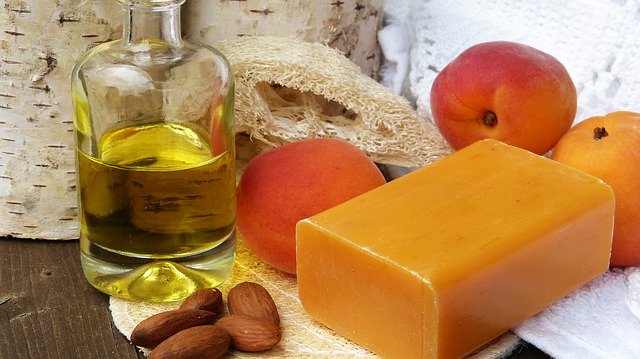Welcome back to my series on nutrition in addiction recovery.
Make sure to catch up on substance-free eating, foods for drug detox and foods for alcohol detox. Now, let’s get into the wellness strategies for recovery!
After optimizing your diet, you can take other simple yet powerful steps to improve energy, clarity, and progress that began when you put down your last drink or drug. Stress reduction will become one of the benefits of implementing a well-rounded program of holistic recovery, with perks like weight maintenance and reduced risk of inflammation and chronic disease. Targeted, integrative wellness strategies help correct underlying health impacts, and they also address the symptoms that can make it hard to stay clean in early recovery. This will help you feel better, faster.
Get Moving
Regular physical movement improves mood and resets neurochemical balance in your brain, while ensuring that any weight changes are healthful. Get your heart pumping for 20 minutes at least once a day to unlock the flow of “feel good” neurotransmitters. Then make it part of your daily routine as you continue your recovery.
This simple activity improves mood stability, blood sugar regulation and cardiovascular health. And it can be anything you enjoy doing – dancing, karate or speed walking matter as much as marathon training or lifting serious weights. Some folks will find that they enjoy more vigorous exercise, which is fine as well. Just don’t feel like that has to be you – find some way of moving your body that is joyous, and do it every day.
Find Like-Minded Friends
Social support is key for maintaining sobriety … and also for maintaining positive changes to your diet. If 12 Step groups like Alcoholics Anonymous or Narcotics Anonymous are part of your recovery plan, invite other members to join you for healthy activities. Refuge Recovery draws from Buddhist principles of mindful awareness, and it’s open to anyone who identifies as being “in recovery” – offering fellowship on the journey to wellbeing, regardless of members’ specific substances or behaviors. Sources of support are everywhere: other programs, sponsors, faith communities, folks at the gym, or a support system may provide encouragement and accountability. Whatever works best for you, make connection a priority. These relationships make it easier to maintain new habits…and they definitely make it more fun!
Mind Your Moments
Mindfulness and meditation are part of many recovery programs for good reason. Through these skills, gain insight, increased clarity of mind, stress reduction, and freedom from cravings, while cultivating compassion for yourself and others. Mindfulness can help you better distinguish between hunger, craving and emotional overwhelm – all of which seem like a blur in early sobriety. These practices can be a natural extension of remaining sober “one day, or one breath, at a time.” Mindfulness can include formal meditation, but it doesn’t have to. It could simply mean taking a moment to notice how your hands feel, practicing mindful eating or enjoying a long, deep breath. Mindful moments help combat cravings and reduce stress.
Look for local groups that combine Buddhism, meditation and/or the 12 Steps as a starting place. If you want to learn more, seek out books and teachings by Valerie Mason-John, Noah Levine, or Kevin Griffin – especially if an in-person practice group is not available to you.
Supplement Sparingly
Dietary supplements aren’t necessary for most people to remain abstinent, but they may help fine-tuning recovery. A basic multivitamin – providing no more than 100% of recommended daily requirements for vitamins A, the Bs (such as thiamine and riboflavin), C, D, and folate (often deficient for long-time drinkers) – is potentially useful to include in your daily routine. This supplement can also provide trace elements such as zinc, magnesium, copper, and selenium, which may be helpful and likely harmless. Zinc, Vitamin A, and thiamine can become supplements separately, depending on the symptoms and deficiencies of the individual.
S-adenosyl-l-methionine may be useful for liver repair and glutathione repletion (part of the detox pathways), while branched chain amino acids can help with protein status. Another potential ally is L-glutamine to help minimize cravings. Rest assured, if you decide to skip the capsules and pills, you can achieve comparable health results by following a balanced diet that also incorporates adequate sleep, stress management, and physical activity.
Sleep Through It
Getting adequate sleep helps your long-term health and wellness a ton. Stories from those in recovery show that the early detox can be a time when sleep can swing to extremes either direction: some experience insomnia, whilst others sleep for days. Ultimately, you’ll want to regain a regular schedule of adequate sleep to support energy levels, mental clarity and physical wellbeing. This regular schedule will also be associated with a healthy weight range, via hormone, metabolic, and appetite regulation. Schedule enough time for 7-8 hours of sleep each night and limit screen time an hour before bed. Make sure the room you sleep in is dark and cool. If you’re still not getting your zzz’s after setting yourself up for success, consider working with a health coach who can help you troubleshoot and get back on track.
Recover Your Mindset
The initial detox period can seem like a tough time to make additional healthy changes, like improving your diet. Empower your recovery by reframing your perspective – this is actually the ideal time to create a foundation of vibrant well-being for your future. And when we feel healthy and strong, it’s easier to stay excited about recovery.







